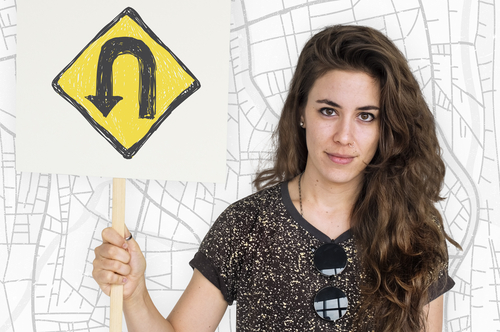Hosea 14:2-10, Joel 2:15-27
Always read on Shabbat between Rosh Hashanah and Yom Kippur, this Haftarah calls for repentance and shows its practical effects. This Shabbat is named “Shabbat Shuva” after its Haftarah’s opening word:
| Hosea 14:2 | הושע י״ד:ב |
| Return, O Israel, to the Lord your God, for you have stumbled in your iniquity. | שׁ֚וּבָה יִשְׂרָאֵ֔ל עַ֖ד ה’ אֱלֹקיךָ כִּ֥י כָשַׁ֖לְתָּ בַּעֲוֺנֶֽךָ׃ |
After this chastisement, Hosea goes on to make the case for repentance. Unusually (see “Haftarah Halakhah”, below), the Haftarah continues with words from a second prophet, Joel. According to Abarbanel, Joel envisions the Jewish people repenting in the face of an enemy attacking from the north[1]. He also foresees God forgiving and resuming a close relationship with them.
Haftarah Breakdown
Hosea, verses 14:2-4: If His people return from their ways…
| Hosea 14:3 | הושע י״ד:ג |
| Take words with yourselves and return to the Lord. Say to Him: “Forgive all guilt And accept what is good, and let us render [for] bulls [the offering of] our lips…” | קְח֤וּ עִמָּכֶם֙ דְּבָרִ֔ים וְשׁ֖וּבוּ אֶל־ה’ אִמְר֣וּ אֵלָ֗יו כָּל־תִּשָּׂ֤א עָוֺן֙ וְקַח־ט֔וֹב וּֽנְשַׁלְּמָ֥ה פָרִ֖ים שְׂפָתֵֽינוּ׃ |
Verses 14:5-8:… God will reward them and those who cleave to them.
| Hosea 14:6 | הושע י״ד:ו |
| I will be like dew to Israel, they shall blossom like a rose; it shall strike its roots like Lebanon. | אֶהְיֶ֤ה כַטַּל֙ לְיִשְׂרָאֵ֔ל יִפְרַ֖ח כַּשּֽׁוֹשַׁנָּ֑ה וְיַ֥ךְ שָׁרָשָׁ֖יו כַּלְּבָנֽוֹן׃ |
Verses 14:9-10: Israel will no longer associate with idols, but rather with God.
| Hosea 14:9 | הושע י״ד:ט |
| Ephraim [shall say,] “What more have I to do with idols?” [God shall say,] “I will answer him and look upon Him [saying]: ‘I am like a leafy cypress tree; from Me your fruit is found.’” | אֶפְרַ֕יִם מַה־לִּ֥י ע֖וֹד לָֽעֲצַבִּ֑ים אֲנִ֧י עָנִ֣יתִי וַאֲשׁוּרֶ֗נּוּ אֲנִי֙ כִּבְר֣וֹשׁ רַֽעֲנָ֔ן מִמֶּ֖נִּי פֶּרְיְךָ֥ נִמְצָֽא׃ |
Joel, verses 2:15-17: The people gather to fast and pray.
| Joel 2:15 | יואל ב:ט״ו |
| Sound a horn in Zion; proclaim a fast, call an assembly. | תִּקְע֥וּ שׁוֹפָ֖ר בְּצִיּ֑וֹן קַדְּשׁוּ־צ֖וֹם קִרְא֥וּ עֲצָרָֽה׃ |
Verses 2:18-20: In response, God says He will spare them, driving away their enemies…
| Joel 2:20 | יואל ב:כ |
| The northern enemy I will distance from you, and I will drive it to a land barren and desolate; its face to the eastern sea and its end to the farthest sea, and its stench shall ascend and its ill savor shall ascend. For [the Lord] shall work great deeds. | וְֽאֶת־הַצְּפוֹנִ֞י אַרְחִ֣יק מֵעֲלֵיכֶ֗ם וְהִדַּחְתִּיו֮ אֶל־אֶ֣רֶץ צִיָּ֣ה וּשְׁמָמָה֒ אֶת־פָּנָ֗יו אֶל־הַיָּם֙ הַקַּדְמֹנִ֔י וְסֹפ֖וֹ אֶל־הַיָּ֣ם הָאַֽחֲר֑וֹן וְעָלָ֣ה בָאְשׁ֗וֹ וְתַ֙עַל֙ צַחֲנָת֔וֹ כִּ֥י הִגְדִּ֖יל לַעֲשֽׂוֹת׃ |
Verses 2:21-27: … and increase their wealth and well-being.
| Joel 2:26 | יואל ב:כ״ו |
| And you shall surely eat and be sated, and you shall praise the Name of the Lord your God, Who has performed wonders with you, and My people shall never be ashamed. | וַאֲכַלְתֶּ֤ם אָכוֹל֙ וְשָׂב֔וֹעַ וְהִלַּלְתֶּ֗ם אֶת־שֵׁ֤ם ה’ אֱלֹ֣קיכֶ֔ם אֲשֶׁר־עָשָׂ֥ה עִמָּכֶ֖ם לְהַפְלִ֑יא וְלֹא־יֵבֹ֥שׁוּ עַמִּ֖י לְעוֹלָֽם׃ |
Haftarah Halakhah
Each Haftarah must be from a single prophetic book except among the twelve “minor” prophets, according to the Talmud:
| Megillah 24a | מגילה כ״ד עמוד א |
| It is taught in a Baraita: One may not skip from [the book of one] prophet to [another] prophet. [However,] one may skip amongst the twelve books of Prophets provided that one does not skip from the book’s end to its beginning. | תניא אידך אין מדלגין מנביא לנביא ובנביא של שנים עשר מדלג ובלבד שלא ידלג מסוף הספר לתחילתו: |
Connections
Reish Lakish bases astonishing statements about the power of repentance upon the Haftarah’s first verse:
| Yoma 86b | יומא פ״ו עמוד ב |
| Reish Lakish said: “Great is repentance, as [one’s] intentional sins are counted for him as unwitting transgressions, as [Hosea 14:2] states: ‘Return, Israel, to the Lord your God, for you have stumbled in your iniquity’ […]
[The Gemara asks:] But didn’t Reish Lakish say: “Great is repentance, as one’s intentional sins are counted for him as merits, as [Ezekiel 33:19 ]stated: ‘And when the wicked turns from his wickedness and does justice and righteousness he shall live?’” [The Gemara reconciles:] This is not difficult: Here when one repents out of love, [his sins become merits]; there when one repents out of fear, [his sins become unwitting transgressions.] |
אמר ריש לקיש גדולה תשובה שזדונות נעשות לו כשגגות שנאמר (הושע יד, ב) שובה ישראל עד ה’ אלהיך כי כשלת בעונך … והאמר ריש לקיש גדולה תשובה שזדונות נעשות לו כזכיות שנאמר (יחזקאל לג, יט) ובשוב רשע מרשעתו ועשה משפט וצדקה עליהם (חיה) יחיה לא קשיא כאן מאהבה כאן מיראה
|
With emendations, biblical translations are by Rabbi A. J. Rosenberg and other translations are from Sefaria.org.
To dedicate, comment, or subscribe, email zbeer570@gmail.com.
[1] Rashi, Ibn Ezra, and others specify this danger as a plague of locusts.
